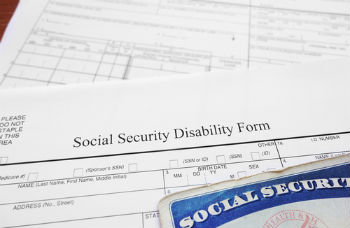Qualifying for SSD Based on Certain Medical Conditions: Mental Illnesses, Diabetes, Back Injuries, Fibromyalgia, and Chronic Fatigue Syndrome
When you are suffering from a disabling condition that prevents you from working, filing a claim for Social Security disability benefits can extremely advantageous, providing you with money that you need every month to get by.
But because the Social Security Administration (SSA) has very stringent rules regarding who qualifies for Social Security disability benefits, understanding your rights if you have a certain medical condition that is not listed in the SSA’s “blue book” can be confusing. Here is an overview of what you need to know.
Requirements for Receiving SSD Benefits
Many people believe that all SSD claims for a disability not specifically listed in the Social Security Administration’s “blue book,” or Listing of Impairments – Adult Listings, will not be approved. While it certainly may help your claim if your disability is listed, your claim may still be approved regardless.
This is because in order for your claim to get approved, the Social Security Administration’s Disability Planner reads that you must not be able to do the work that you did before due to your disability, not be able to adjust to other work due to your medical condition, and that your disability has lasted or is expected to last for at least 12 months or/and result in death.
To be sure, the Disability Planner: How We Decide If You Are Disabled, by the SSA, states that step two in the process of determining if a person is able to receive SSD benefits is determining whether or not the person has a “severe” condition that prevents him or her from working. Step three is to then determine whether the person has a condition that is found in the listing of impairments. The step reads that if the person’s condition is not on the list, then the SSA must determine if the condition is “of equal severity to a medical condition on the list.”
Proving That a Medical Condition Prevents You from Working
Proving that a medical condition prevents you from working and is of equal severity to a condition found in the blue book may be the most complex part of filing a convincing claim and being approved for benefits. In order to prove this, you will need to collect all medical evidence related to your disability, including statements from your doctor or multiple doctors that your medical condition is disabling to the point where you are unable to work.
How a Texas SSD Lawyer Can Help You
Can I have a lawyer represent me in applying for Social Security Disability or Supplemental Security Income? If you do not have a disability that is found on the listing of impairments, you may believe that you are unable to file an SSD claim. However, your right to Social Security disability benefits is protected if your condition is disabling and prevents you from working. An SSD lawyer can help you prove this, file your claim, or appeal a denied claim.
At The Bob Richardson Law Firm, our experienced Texas Social Security disability lawyers are ready to get to work today. Contact us online to request your free consultation now.



